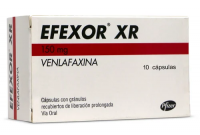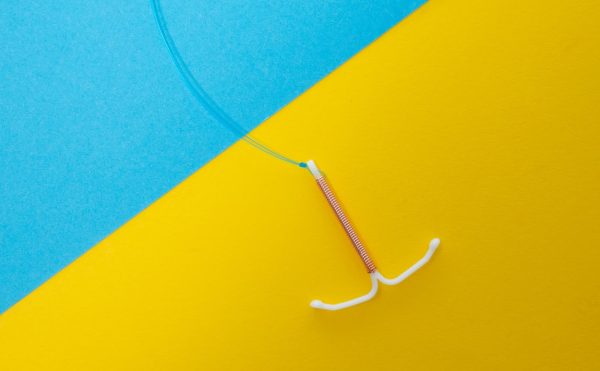3 min read
Close pregnancy intervals pose a high risk to the mother because they cause malnutrition. Hence, you can tackle this using a birth control IUD, such as Skyla. Since rumors have it about the Skyla IUD depression side effects are widespread, women doubt choosing it.
Instead of worrying about confusing news, it would be better if you raise awareness by exploring further information. If you are reading this article, it means you are on a good page since it will discuss the plain truth about Skyla and other potential side effects that may occur. Let’s jump into the discussion!
Skyla In a Nutshell
Skyla is one of the IUD birth control brands manufactured by Bayer Pharmaceutical Inc. This type of hormonal IUD received FDA approval (Food and Drug Administration) on January 9, 2013. Almost all hormonal IUDs use levonorgestrel which is released slowly in small doses.
This birth control works by inhibiting sperm movement. Levonorgestrel will trigger the cervix to produce thick mucus that makes it difficult for sperm to survive. Along with that, women’s eggs will be difficult to attach to the uterus since the hormone released by the Skyla IUD will thin the uterine wall.
The hormones in the Skyla IUD can prevent pregnancy for 3 years. Like other birth controls, Skyla also has side effects ranging from mild to severe. Skyla IUD depression side effects confuse women who want to use this birth control.
Is It True That Skyla Spark Off Depression?
As a matter of fact, many have researched the use of hormonal birth control with mood swings. However, currently, there is not much research data that specifically examines the side effects of using IUDs which cause depression.
Quoting information from the NURX page, research published in 2016 in Denmark stated that researchers found an increased risk of first-time depression diagnoses from using IUD contraception. Researchers obtained this data by observing 1 million women from all over the world.
Along the line, the research also revealed that women who were included in this study had an increased risk of taking antidepressants for the first time. Below are some essential points that highlight the Skyla UID depression side effects on its users.
1. Research data shows that over the course of one year, doctors prescribed antidepressants to 2.2% of women who used hormonal birth control. Meanwhile, antidepressant prescriptions for women using non-hormonal birth control were lower, at around 1.7%.
2. Women aged 15-19 who use IUD birth control are more at risk of experiencing depression.
3. Research data also shows that non-oral types of birth control, such as IUDs, increase the risk of depression more than birth control pills.
4. Compared with those who did not use an IUD, women who used an IUD were 1.4 times more likely to be prescribed an antidepressant.
After knowing all the research data, a conclusion can be drawn that any type of hormonal birth control poses a risk of depression in women who use it. Facts also reveal that the Skyla IUD depression side effect is higher than other types of contraception.
Potential Side Effects of Skyla to Ponder About
Since birth control, IUDs have side effects that can adversely affect your health, it is crucial to know what the potential side effects are. You can contemplate some of the potential side effects shared on the Good RX page below.
1. Side Effects During Insertion
Given that Skyla UID is inserted into the uterus, it must be performed by a medical professional. The most commonly reported side effect during insertion is mild pain that lasts for a few minutes.
2. IUD Removal Side Effects
Aside from knowing about the Skyla IUD depression side effects, you may also experience side effects from IUD removal. Reports of minor side effects during Skyla IUD removal include cramps and mild spotting. However, IUD removal can also cause side effects such as vaginal discharge, severe pain, and fever.
3. Vaginal Infection and Inflammation
Clinical studies reveal that as many as 20% of women who use Skyla UID experience infection and inflammation of the vaginal vulva. A common symptom of vulvovaginitis is a change in vaginal discharge.
4. Ovarian Cyst
Another side effect to consider if you use the Skyla IUD is ovarian cysts. It is alarming since research data shows that as many as 13% of women develop ovarian cysts after using Skyla UID. Women who suffer from ovarian cysts may not experience any symptoms.
However, some women experience pain during sexual intercourse and pelvic pain. The good news is that ovarian cysts can disappear on their own without treatment within 2 or 3 months.
5. Ectopic Pregnancy
A more life-threatening side effect of the Skyla IUD depression is ectopic pregnancy or the position of the fetus outside the uterus. To reduce the risk of ectopic pregnancy, make sure you do not use an IUD during pregnancy. There are symptoms of ectopic pregnancy that you need to know, such as:
- lower abdominal cramps;
- vaginal bleeding;
- lower back pain; And
- lower stomach pain.
6. Breast Cancer
Since the Skyla IUD is a hormonal birth control containing the hormone progestin, it is not recommended for use by those with a history of breast cancer. The reason is, the hormone progestin can worsen breast cancer.
Alleged Lawsuit Against Skyla IUD
Skyla IUD manufactured by Bayer Pharmaceutical Inc, has received many accusations in lawsuits that it adversely affects the health of its users. Summarizing information from the Law Defence and Law Court pages below are the lawsuits against Skyla UID.
1. Uterine perforation due to the IUD penetrating the uterine wall. This condition can lead to infertility and organ damage.
2. Pelvic Inflammatory Disease (PID) caused by IUD infection. This disease will have broader impacts, such as infertility, chronic pelvic pain, and ectopic pregnancy.
3. Device migration causes pain and is susceptible to infection.
4. The use of the Skyla IUD also causes unexplained spotting and bleeding.
Do You Get All Scoop Facts about Skyla’s IUD Depression and Other Potential Side Effects?
Ultimately, research reveals that Skyla IUD’s depression side effects are prone to occur in teenagers aged 15 to 19 years. However, this T-shaped birth control also has other potential side effects from mild to severe.
Don’t hesitate to contact your healthcare provider and lawyer if you experience adverse health outcomes due to using Skyla.
Bagikan










